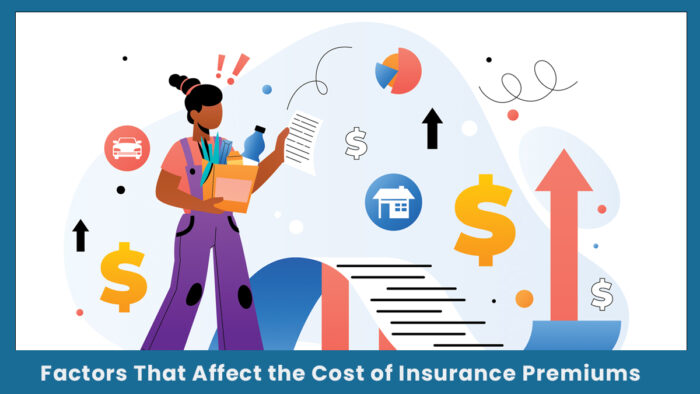Understanding the factors that affect the cost of insurance premiums is essential when choosing the right policy. Your age, health, and lifestyle all play a big role in how much you pay. Younger and healthier individuals often enjoy lower premium rates.

Futhermore, other factors that affect the cost of insurance premiums include the type of policy, your job, and even your credit history. High-risk jobs or smoking habits can increase the price. Knowing these details helps you plan better and choose wisely.
Top 7 Factors That Affect the Cost of Insurance Premiums
Here are the top 7 factors that affect the cost of insurance premiums that you need to know so you can make smarter financial decisions. These include your age, health status, lifestyle choices, occupation, coverage amount, and policy type. Each of these can impact how much you pay, so being informed puts you in a better position to manage your premium and find a policy that fits your needs and budget.
1. Age
Your age plays a major role in determining your life insurance premiums. The younger you are, the cheaper your rates. This is because younger people typically have longer life expectancies and are considered less risky to insure. If you’re older, premiums are higher and you may even be denied coverage in some cases.
Additionally, life insurance costs usually rise between 8% to 10% each year as you age. That means the longer you wait, the more you’ll pay. Term life insurance locks in your rate for the term period, but once it expires, renewing coverage could cost more due to your age and health. Whole life insurance, though more expensive, usually comes with a level premium for the duration of the policy.
2. Gender
Gender also impacts life insurance costs. On average, women tend to live longer than men, so they usually pay less for life insurance. Insurance providers use this life expectancy data when calculating premiums.
3. Smoking
Smoking usually raises your life insurance costs. Whether you smoke occasionally or regularly, insurers see it as a major health risk. Smokers typically pay more than double the premiums of non-smokers for similar policies.
Be honest about your habits. If you lie about smoking and the insurer finds out, your policy could be canceled.
4. Health
Your current health and medical history affect your premium. Most insurance companies require a health exam that looks at your weight, blood pressure, cholesterol, and other health indicators. Some may request additional tests like an ECG.
If you have pre-existing conditions like diabetes or high cholesterol, managing them well can help you get better rates. You can also explore “no exam” policies, though they tend to cost more.
5. Lifestyle
Engaging in high-risk activities like skydiving, scuba diving, or car racing can increase your premiums. Even your job matters. People in dangerous professions such as firefighting or construction often pay higher rates.
6. Family Medical History
If close family members have suffered from serious health conditions such as heart disease or cancer, your rates may be affected. Some insurers weigh family history more heavily than others, especially when it involves early deaths.
7. Driving Record
Insurance companies often check your driving history. Accidents or traffic violations in the past few years can lead to higher premiums. A clean driving record may help you qualify for better rates.
What Is the Age Limit for Life Insurance?
Each insurer sets its age limits. Generally, it becomes harder to qualify as you age, and some companies stop offering policies after age 85.
How Does Gender Affect Life Insurance Premiums?
Men usually pay more than women because of shorter average lifespans. However, this is just one factor among others, like lifestyle and health, that determine your final premium.
What’s the Best Age to Get Life Insurance?
The younger you are when you buy a policy, the lower your premiums will likely be. It’s best to get coverage when you’re healthy and have a steady income to pay for the policy.
The Bottom Line
Life insurance offers peace of mind and financial security for your loved ones. It helps ensure they won’t struggle financially if something happens to you. But it also comes at a cost. It’s important to consider whether it fits into your long-term financial plan before committing to a policy.


